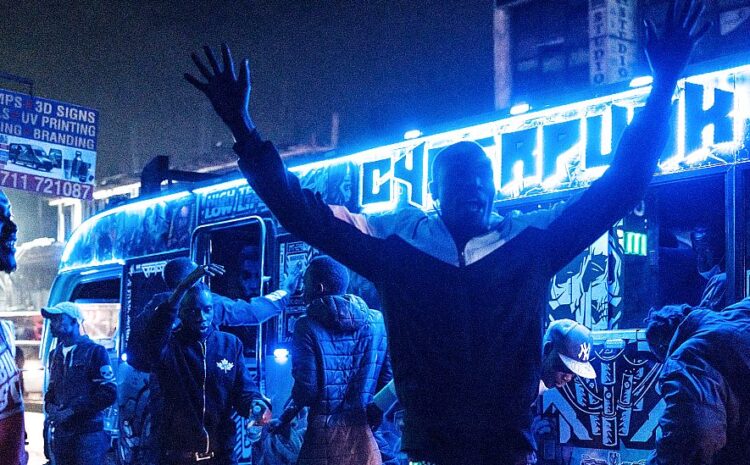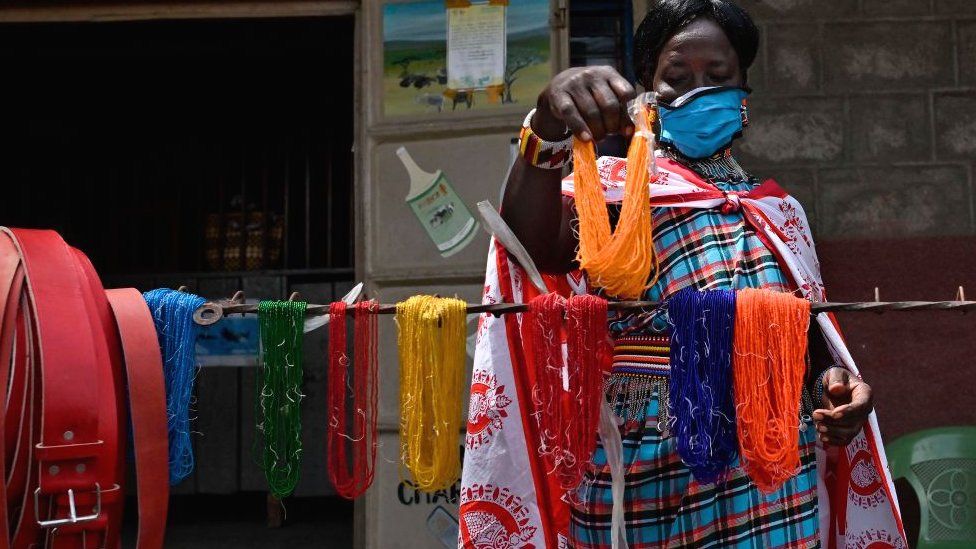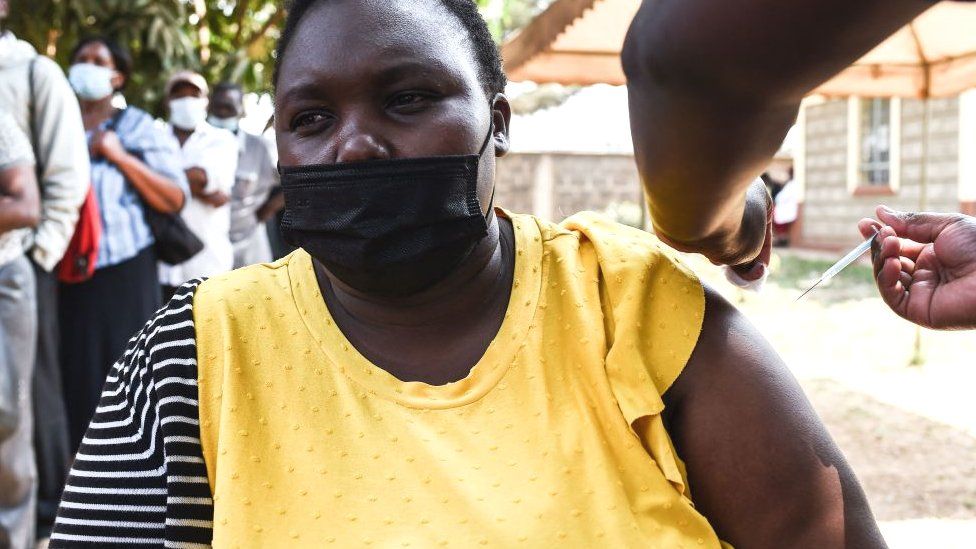
IMAGE SOURCE, AFP
In our series of letters from African journalists, broadcaster Waihiga Mwaura looks at how Kenyans are loving their new-found freedom.
The dusk-to-dawn curfew that Kenyans endured for 18 months was revoked last week by the president.
Uhuru Kenyatta chose to announce it on the public holiday when the East African nation remembers the heroes who fought for freedom from British colonial rule.
The country’s relief was palpable – and Kenyans online burst into immediate celebrations with amusing memes.
Some of them took a swipe at police officers, suggesting they would be dejected now they would be no longer able to continue their alleged practice of extorting bribes from people at roadblocks set up to enforce the curfew.
Medical experts too were pleased – and felt President Kenyatta’s announcement was long overdue.
“As has been demonstrated (eg in the UK) most important is not closures, curfews and lockdowns but vaccination.”
Huge job losses
The government had found itself under immense pressure to either end the curfew or put up funds to cushion businesses that have found it difficult to operate because of fewer working hours.
 IMAGE SOURCE, REUTERS
IMAGE SOURCE, REUTERSA phone survey conducted by US academics found that out of 2,739 small retailers contacted in and around the capital, Nairobi, the majority were struggling, their businesses suffering, with higher levels of unemployment within their households.
To make matters worse, according to those polled, there was little or no assistance from the government, non-governmental organisations or other entities.
Some entrepreneurs unable to make ends meet had to change their focus – some even shifted their base, relocating to countries such as neighbouring Tanzania where there were fewer restrictions.
 IMAGE SOURCE, AFP
IMAGE SOURCE, AFPThose unable to adapt closed. According to the Pubs, Entertainment & Restaurants Association of Kenya (Perak), about 7,500 bars, hotels and entertainment spots have shut down countrywide – with an estimated loss of 250,000 jobs.
There has also been some unhappiness about the double standards at play.
While these Covid-19 mitigation measures were affecting the living standards of ordinary Kenyans, the political class seemed oblivious to the rules.
Politicians continued to hold large rallies and late-night meetings, contrary to Ministry of Health public guidelines and curfew regulations.
Vaccination push
Experts say that it takes 21 days to form a habit, and for a majority of Kenyans the curfew became a way of life – it lasted for well over 500 days.
Until new habits form, it is difficult to say how and if businesses will recover.
 IMAGE SOURCE, AFP
IMAGE SOURCE, AFPEncouragingly, event organisers and taxi drivers did report increased business over the first curfew-free weekend.
Hoteliers have also noted an improvement in the number of bookings ahead of the festive season.
Yet Perak and others are still concerned – only around 2.8% of Kenyans have been fully vaccinated against Covid-19.
Some of them are ready to sponsor free meals and drinks for those who choose to get vaccinated at their joint”
They fear that if Kenyans do not take vaccination seriously, then the dreaded curfew or other measures, including lockdowns, could be reinstated after Christmas.
That is why they are asking the government to set up vaccination centres in popular meeting places, such as bars and restaurants, to encourage people to get jabbed.
In fact, some of them are ready to sponsor free meals and drinks for those who choose to get vaccinated at their venue.
When the vaccine rollout began in March, President Kenyatta promised that 10 million Kenyans – about 25% of the population – would be jabbed by the end of the year.
A lack of vaccines was initially behind the slow take-up, but now hesitancy is one of the main drivers stopping people.
So the strategy to target revellers might convince some – and is likely to have more of an effect than public information adverts battling the misinformation proliferating on WhatsApp.
For now Kenyans are just happy that, like the anti-colonial heroes who gave them their freedom – or “uhuru” in Swahili – they too now have uhuru to carry on the business of living at all hours.
